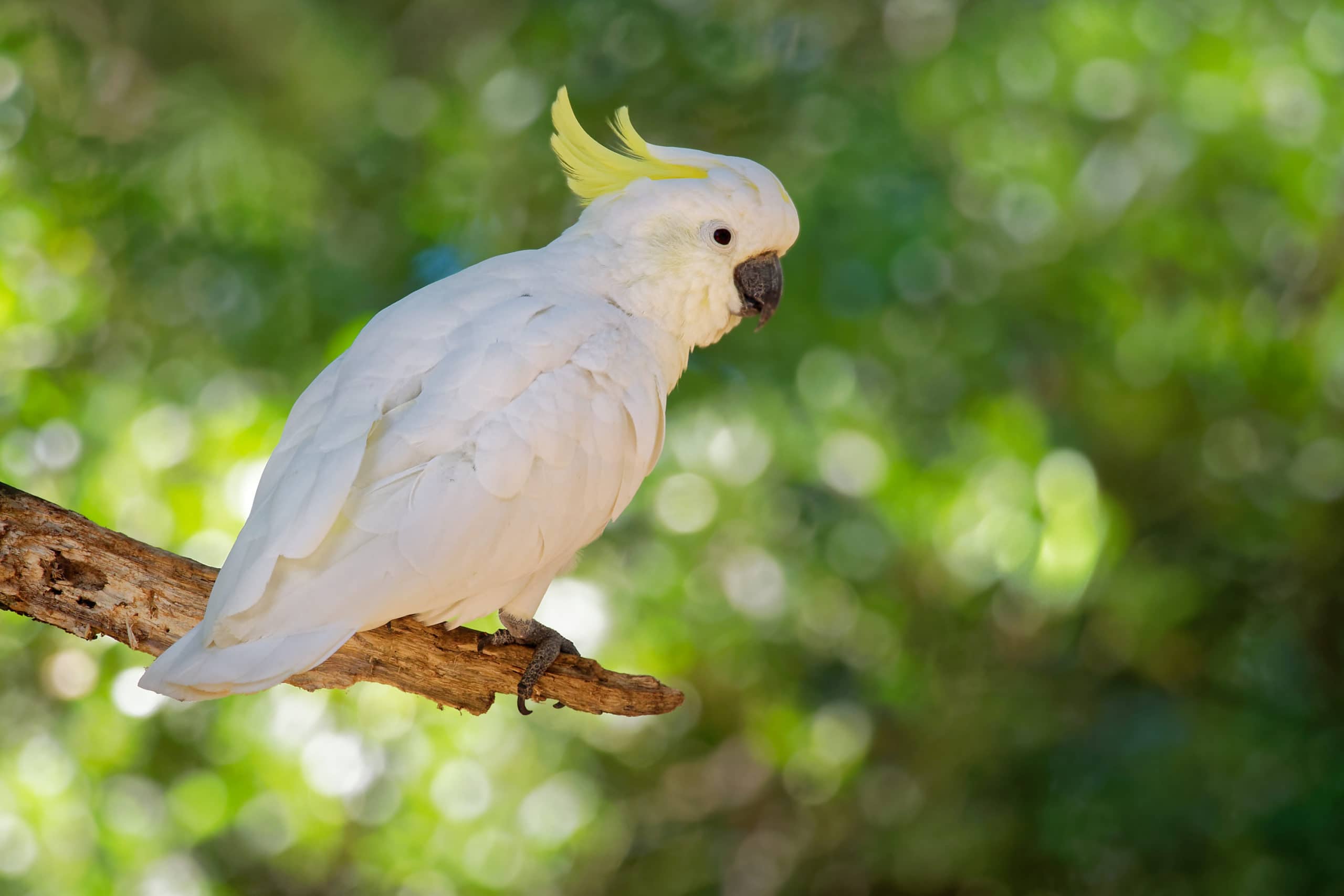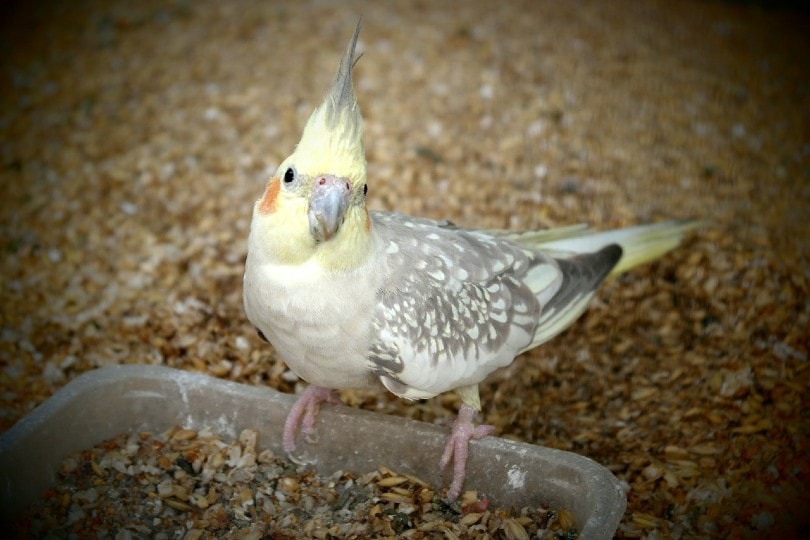
Cockatiels are fantastic pets, but they sometimes exhibit behaviors that are puzzling and curious to humans. One example of odd behavior that you might notice your cockatiel displaying is shaking.
You know that humans shake for various reasons, like when we’re cold or if our body is in shock, but what could be causing your cockatiel to tremble?
Most of the time, shaking in birds is normal behavior that could signify your bird is cold, stressed, sleepy, or grooming itself. Shaking, when accompanied by other symptoms, can be a sign of illness.
Keep reading to find five potential reasons your cockatiel could be shaking.
The 5 Possible Reasons for a Cockatiel to Be Shaking
1. It’s Cold
Just like we shiver when we’re cold, your cockatiel could be shaking simply because it’s cold. You should aim to keep the temperature of the bird’s room anywhere between 65–80°F (18–26°C).
It’s best if you can avoid any extreme temperature changes in their environment. Cockatiels chill fast when the room they’re in is cold or if the temperature drops, and they will need to work hard to maintain their body temperature.
You might consider investing in a space heater to keep the temperature of the room as consistent as possible. If you prefer not to have a space heater, make sure your cockatiel’s cage is away from windows or air vents where drafts can enter.
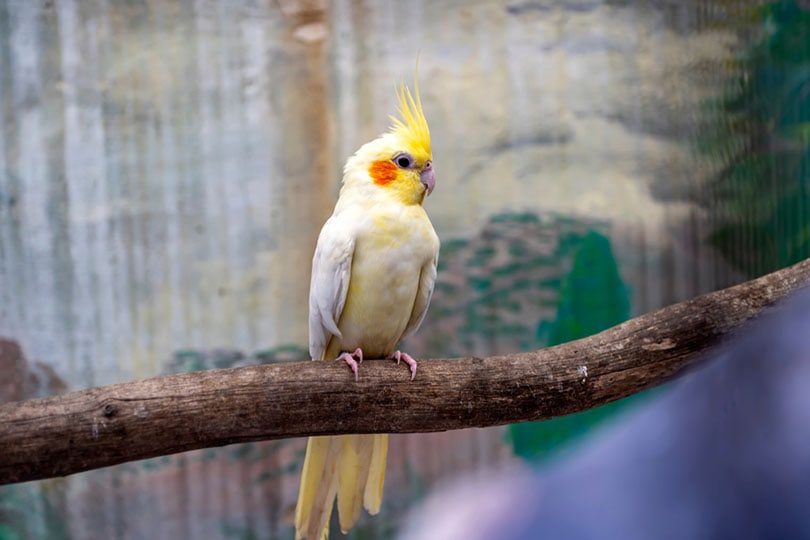
2. It’s Feeling Unwell
Shaking could be a sign of illness. If you notice your cockatiel shaking, losing its balance, or spending a lot of time at the bottom of the cage, you need to get it to the vet as soon as possible. It could be an infection or respiratory illness causing this strange behavior.
You will know if the reason they’re shaking is due to an illness if their feathers are fluffy up constantly no matter what the temperature is in their room.
Other signs of illness include disarranged and ruffled feathers, lack of appetite or reduced water intake, wheezing noises, and unusual behavior. You know your bird best, though. If its shaking is accompanied by out-of-character behavior, you should get it to the vet for a check-up.
Cockatiels are generally healthy birds, but when something goes wrong, you need a resource you can trust. We recommend The Ultimate Guide to Cockatiels, an excellent illustrated guide available on Amazon.
This detailed book can help you care for your cockatiel through injuries and illnesses, and it also offers helpful tips on keeping your bird happy and healthy. You’ll also find information on everything from color mutations to safe housing, feeding, and breeding.
3. It’s Stressed or Afraid
Your cockatiel’s wild ancestors were targets for larger and stronger species in the wild. Your precious domesticated bird carries with it the innate fear that it’s in danger from its ancestors. Even something as innocuous as you dropping something in the room next to their cage can startle them and cause them to shake. Sudden movements, lighting changes, and shadows can also spook your bird.
You might notice your cockatiel fluff up after the threat has passed and do a final shake or two. This movement is common amongst many bird species and could be a way for them to literally shake off the fearful experience they just endured.
There are a lot of things that could be stressing out your cockatiel. They thrive in an environment that is consistent. If you have recently switched up where their cage is or if they suddenly lose track of their favorite toy, they could become agitated and stressed out. Even the sound of your new pet dog barking is enough to send your bird into a bit of a frenzy. You’ll know your cockatiel is feeling stress when their shaking is also accompanied by pacing.
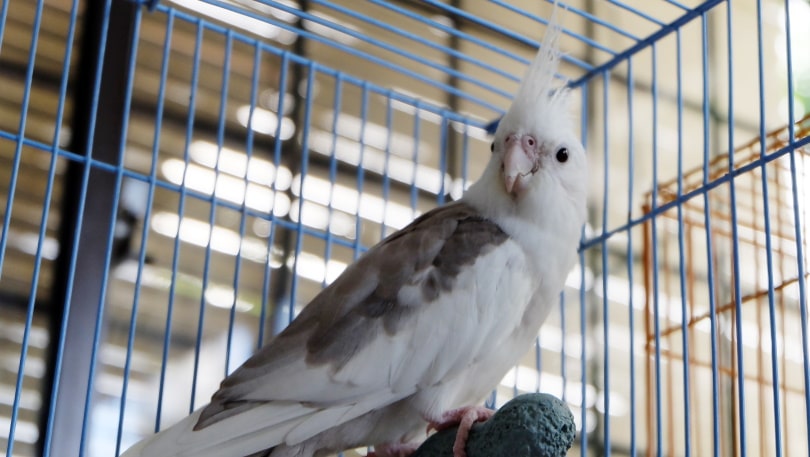
4. It’s Grooming
Trembling is a normal part of most cockatiel’s grooming routine. They often ruffle their feathers while they groom and fluff them up as they dry after a bath. Your bird may be shaking while grooming to loosen up any dirt or food debris that may have found its way into its feathers.
If your cockatiel is shaking due to grooming, you’ll also notice it nuzzling at its feathers with its beak to clean every individual feather. They shouldn’t display any other signs of stress and should stop shaking within a few minutes.
5. It’s Tired
When your cockatiel is about to retire for the night, you might see them start fluffing its feathers and shaking a bit. These actions could be part of your bird’s winding down routine that allows them to relax before they go to sleep. Some people believe that this pre-bedtime ritual allows your bird to calm its nerves for nighttime.
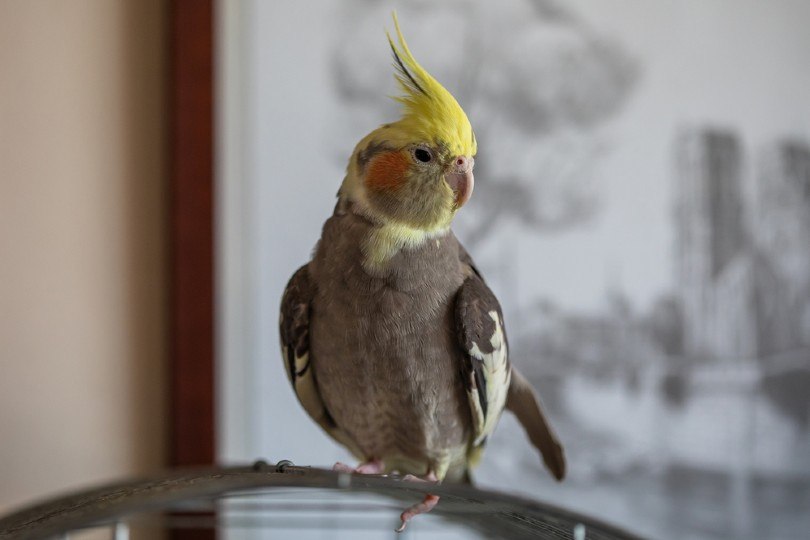
Conclusion
Cockatiels and many other bird species have little tics that may seem worrisome and unusual for humans but are completely normal behaviors for birds. If your pet isn’t displaying any other curious or worrying symptoms, chances are its shaking is entirely benign. If you’re ever in doubt, though, give your avian vet a call. We believe that peace of mind is worth a phone call.
Featured Image Credit: Simona Robová, Pixabay




